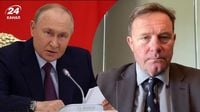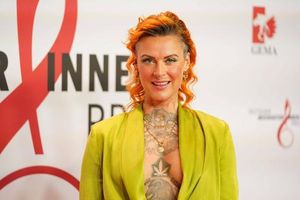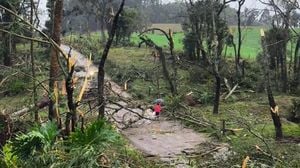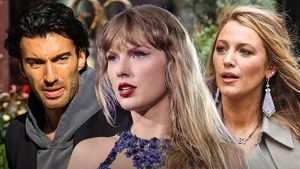As tensions escalate in Russia, former British Colonel Hamish de Bretton-Gordon has issued a stark warning regarding President Vladimir Putin’s grip on power and the dire economic situation facing the nation. In a recent interview, de Bretton-Gordon stated that Putin has effectively kept Russia in a state of constant tension, frequently initiating conflicts and suppressing opposition.
De Bretton-Gordon emphasized that Putin is approaching a catastrophic end to his 25-year rule, a situation he is keen to avoid. The economic climate in Russia is deteriorating rapidly, with low oil prices threatening to make life unbearable for many citizens. He noted, "If oil prices remain low for a long time, living there will be unbearable, and problems with products may begin." This economic decline poses significant challenges for the Russian populace, who may soon face severe shortages.
For years, Putin has expressed ambitions to restore the Soviet Union by annexing territories, but de Bretton-Gordon believes his efforts are unlikely to succeed. He stated, "Putin may suffer a major defeat and is responsible for all the deaths and destruction of the Russian economy." He characterized Putin as a "dictator-failure" who may not live long enough to retire comfortably.
De Bretton-Gordon pinpointed Putin's full-scale invasion of Ukraine as his gravest error during his presidency, asserting that the West shares some responsibility for not acting decisively in 2014 when Russia annexed Crimea. "When the Russians invaded Crimea in 2014, we should have acted much faster and more decisively," he noted. The consequences of Putin's actions have led to numerous deaths and widespread destruction in Ukraine, a legacy that history will not judge favorably.
On May 9, 2025, as international scrutiny of Russia's actions intensifies, diplomats and foreign ministers from various European countries gathered in Lviv to initiate a special tribunal aimed at addressing the war crimes committed by Russia. This move underscores the growing international consensus that accountability is necessary for the actions taken during the ongoing conflict.
In a related development, Putin recently discussed the topic of succession in a documentary titled "Russia. Kremlin. Putin. 25 Years." During this film, he was asked by Pavel Zarubin of Russia-1 about potential successors, a question that has sparked significant media attention. Putin stated that he thinks about a "successor" every day, suggesting that there should be "several candidates" for the role. However, he refrained from naming any specific individuals.
Putin's remarks about succession have been met with mixed reactions, with both opponents and supporters of his regime expressing interest in what the future might hold for Russia. The topic has become particularly relevant as citizens grow increasingly weary of the current political climate. Observers speculate about potential successors, including Prime Minister Mikhail Mishustin and Moscow Mayor Sergey Sobyanin, as well as other figures within Putin's inner circle.
Despite the apparent interest in future leadership, Putin’s statements indicate that he has no immediate plans to step down. In 2020, he reset his presidential terms, a move that effectively extended his rule until at least 2036. This decision was framed as a necessity to prevent elite factions from seeking successors too soon, thereby maintaining stability within the Kremlin.
The Russian political landscape is further complicated by the upcoming 2026 Duma elections, where the ruling United Russia party is strategizing for a campaign amid ongoing conflict and economic challenges. Recent meetings between party officials and Kremlin strategists have revealed a lack of clear direction, with discussions focusing on the need for "heroes in the broadest sense of the word" to lead the party's list.
However, the uncertainty surrounding the war's progression and its impact on public sentiment poses significant risks for the ruling party. Political analysts warn that if the conflict continues or escalates, it could lead to increased dissatisfaction among the electorate, particularly regarding rising prices and the return of soldiers from the front lines.
As the political climate grows more precarious, the Kremlin is aware of the potential for unrest similar to the protests seen in 2011 when public trust in election results waned. The current political leadership, including First Deputy Head of the Presidential Administration Sergey Kiriyenko, finds themselves navigating a complex landscape of public expectations and political reality.
In a notable meeting, Putin recently conferred with Chechen leader Ramzan Kadyrov amid rumors of Kadyrov's potential resignation. Kadyrov, who has consistently touted his achievements in Chechnya, received praise from Putin during their discussion. However, the persistent challenges Kadyrov faces from rivals within the security services highlight the fragility of his position.
Experts suggest that Kadyrov's reliance on Putin for validation reflects broader vulnerabilities within the Russian political system. As Kadyrov seeks to maintain his influence, the Kremlin's internal dynamics continue to shift, leaving many to wonder about the future of leadership in Russia.
As the world watches closely, the unfolding events in Russia signal a critical juncture for both the nation and its leadership. With economic pressures mounting and the specter of political change looming, the coming months will be pivotal in shaping Russia's trajectory.




